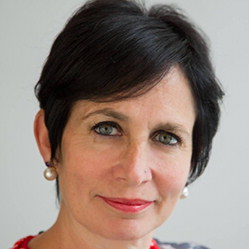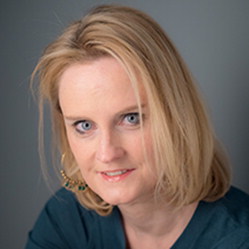As we survey the current teacher education and school policy landscape, both in the United States and internationally, we are concerned about the lack of both research and theory undergirding policy decisions affecting schools and children. In the United States, we note that much of the current policy focuses on aspects such as school structures (largely on policies for adding charter schools) and testing (versus assessment) rather than how to effectively support teacher learning and growth over time; build schools that are environments for learning; bridge schools, families, and communities; and retain high quality teachers. Additionally, those policies that might support development and retention (i.e., local and state policies that require teachers to do a certain number of professional development hours and national and state curriculum guides), are rarely grounded in empirically based theories of how children and adults learn and the kinds of real life complex challenges that they face outside of school in their homes and communities. For example, despite extensive research in the qualities of professional development (extended in time and duration), most policies support professional development that is workshop driven and not much more than an accumulation of hours over the course of the year. If policy were grounded in the work of professional development research, it might, perhaps, recognize the importance of situating that work in the daily lives of teachers, encouraging action research, reflection, and extended time to work with other colleagues, families, and communities.
In this issue, we find work that helps us re-imagine how theory and research fit together to create sustainable policies for improving teaching, learning, schools, and ultimately the lives of children. For example, Tanner, a renowned John Dewey scholar, pieces together a history of curriculum tracing back to the work of Lester Frank Ward. Tanner argues, convincingly, that schools should return to the work of Dewey to guide us in curriculum development, marrying philosophy and pedagogy, “For there can be no education without story, adventure, and imagination.” Gordon and Parham’s piece, “Transitioning from the military to teaching: Two veterans’ journeys through the entry year,” explores the realities of induction for teachers transitioning from military career service. Here the case studies of two teachers provide an important illustration of how teachers’ histories and experiences inform their teaching lives. Without such illustrations, there is a tendency to create policies and programs based on a generalized teacher without space for the significant variations of how theory and research play out. Similarly, Munter and Haines, in their piece, “‘Students get what flows downward’: District leaders’ rationalizations of the standardized testing of children,” examine the consequences of current testing policies on a single district. In doing so they draw attention to the implications of increasing testing for student and teacher learning. In some cases, they note that the consequences of the policy were directly opposite of its intention. This kind of “close” lens for understanding policy is exactly the kind of research that can and should be informing curriculum and teaching practices.
Shifting our attention across the globe to Ghana, in their cross-sectional study, Chowa and Masa analyze the relationships between types of home assets and academic achievement among junior high school students. Echoing the work of Jean Anyon, they demonstrate how ownership of such things as homes and transportation increases student success in schools. Their research reminds us of the complexities of student achievement and the need to develop programs both in and outside of schools to support children and families who are struggling with poverty. Skipper and de Carvalho, in the United Kingdom, explore how the interactive science sessions at a university influenced the ways in which girls, ages 12–14, think about their potential success in science classes and consider scientific learning interesting and engaging. Their article highlights the need for girls to engage with science outside of school as a means of encouraging academic success. Finally, in the United States, Petty, Good, and Heafner draw our attention to the process of National Board Certification and the influence it has on the practices of classroom teachers. Examining the data in relationship to the Five Core Propositions of the National Board for Professional Teaching Standards, they describe teachers’ reported growth in areas such as leadership, effective instruction, and subject mastery.
Throughout these pieces runs a narrative about the importance of understanding the lived experiences of teachers and students as a means of marrying theory and practice and considering the external factors that influence learning. Without an understanding of the experiences of teachers and students within policy contexts that seek to contextualize that within democratic, socially just theories about schools, we run the risk of enabling policies that ignore the messiness of on the ground school change located in the lives of real people and communities.
Montclair State University
[email protected]
Emily J. Klein
Montclair State University
Additional information
Notes on contributors

Monica Taylor
Monica Taylor is a feminist teacher educator, social justice advocate, and parent activist. She is a professor in the Department of Secondary and Special Education at Montclair State University. She has several publications on feminist pedagogy and research methodologies, teaching for social justice, teacher leadership, and urban teacher education. She is co-PI of the Wipro Science Education Fellows grant which supports science teacher leaders in five districts in New Jersey. Her most recent book, Playhouse: Optimistic stories of real hope for families with little children, describes a progressive parent cooperative school through the interwoven narratives of her own children and those of families for the last sixty years. Her commitments to fighting sexism, heteronormativity, and racism manifest in all aspects of her life. She advocates for her own children and New Jersey students as an organizer for Save Our Schools NJ. She also deeply values the work of the many teachers with whom she is in contact.

Emily J. Klein
Emily J. Klein is a former high school English teacher and current professor at Montclair State University in the Department of Secondary and Special Education. She is currently co-PI on the WIPRO Science Education Fellows grant that supports science teacher leadership in five districts in New Jersey The author of several articles on teacher professional learning, teacher leadership, and urban teacher residencies, she is deeply committed to the work and lives of teachers. Her first book Going to scale with new school designs: Reinventing high school, was published by Teachers College Press. Her second book, A year in the life of an urban teacher residency: Using inquiry to reinvent math and science education, was published by Sense Publishers in 2015.
